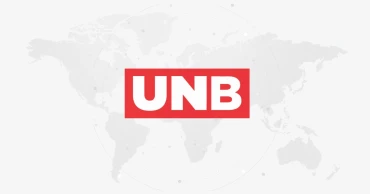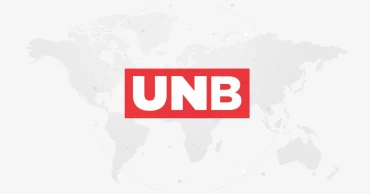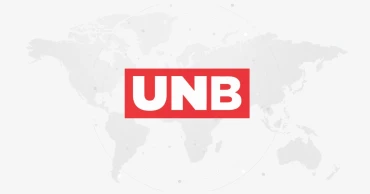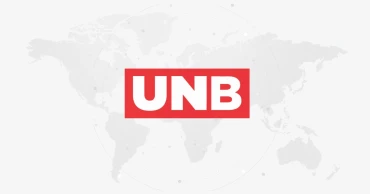Budget 2021-22
BGMEA wants continuation of 0.5 per cent source tax
Bangladesh Garment Manufacturers and Exporters Association (BGMEA) on Saturday demanded that the government continue the existing 0.5 per cent source tax for the next five years in the new budget.
“We demand the continuation of the existing rate of 0.5 per cent source tax as it is suitable for long-term business planning,” said BGMEA President Faruque Hassan.
Also read: It’s a very significant budget: BGMEA
The budget for 2021-22 fiscal did not include the proposals made to the authorities for the benefit of the RMG sector, he said at press conference at its headquarters in Uttara.
The BGMEA president welcomed the proposal to reduce import duty on some machine parts and chemicals used in the garment sector.
Also read: New budget unveiled with focus on protecting lives and livelihoods
4 years ago
Allocation in budget for agriculture 'enough' for Dr Razzaque
Agriculture Minister Dr Abdur Razzaque on Friday said enough allocation was given for the agriculture sector in the proposed national budget of 2021-22 fiscal year.
“I feel no deficit in the allocation to operate our activities. We’ve been given enough allocation,” he said at a virtual post-budget press conference.
Finance Minister AHM Mustafa Kamal also addressed the press conference arranged a day after he placed the proposed budget in Parliament.
The Agriculture Minister said though the allocation for agriculture declined in terms of percentage, it did fall in amount. The amount of agriculture loans was Tk 14,000 crore to Tk 15,000 crore in the past, which has increased at some Tk 22,000 crore in the upcoming fiscal year during the corona-period. And the interest rate of the loans was lowered, he said.
He said the government had given the highest priority to agriculture also during its first tenure after assuming power in 2009.
Also read: New budget unveiled with focus on protecting lives and livelihoods
Abdur Razzaque said the agriculture production has significantly increased. “So, now the goals of the government are to sustain productivity and to boost production further,” he said.
Since Bangladesh attained self-sufficiency in food, now another goal of the government is to expedite agricultural mechanisation and commercialization of agricultural products through promoting food-processing industry in the country, he said.
“The production in all the agricultural sub-sectors went up. Now we’ll go for processing the agricultural products in mills and factories and then supply to local market and export to international market. Such measures have been taken in this budget,” said the Minister.
He said the Agriculture Ministry started implementation of a Tk 3000-crore project for agricultural mechanisation to reduce the production cost amid the high wages of agricultural workers as the farmer don’t make profit in many cases now.
In this budget, Tk 680 crore has been allocated for the project implementation in the upcoming fiscal year, he said.
Also read: New budget: Tracking prices going up and down
“The budgetary allocation for agriculture is good enough. There will be no problem with (this allocation),” he said.
If needed, there is an instruction of the Prime Minister to allocate more funds to agriculture from any other sector except health, said the Agriculture Minister.
Planning Minister MA Mannan, PM’s Economic Affair Dr Mashiur Rahman, Bangladesh Bank Governor Fazle Kabir, Senior Secretary of Finance Division Abdur Rouf Talukder, National Board of Revenue (NBR) Chairman Abu Hena Md Rahmatul Muneem, among others, spoke at the conference.
4 years ago
Businessmen given highest benefits with objective to create jobs: Finance Minister
Finance Minister AHM Mustafa Kamal has defended his tweaks to the law and budget items to provide businessmen the highest number of benefits in the proposed national budget for the fiscal year 2021-22, under an objective that they would reinvest in business, which would ultimately create more jobs.
He made the remarks while addressing a virtual post-budget press conference on Friday against the background of the Tk. 6,03,681 crore (Tk 6.03 trillion) budget placed Thursday in parliament, equivalent to 17.5 percent of GDP, for which in turn he set a target to achieve 7.2 percent growth in the 2021-22 fiscal.
In the budget, the overall deficit was outlined at Tk 2,14,681 crore, which is 6.2 percent of GDP. Kamal's plan is to meet it by mobilizing Tk. 101,228 crore from external sources, and Tk 113,453 crore from domestic sources. Two-thirds of the domestic financing, Tk. 76,452 crore, Kamal expects from the banking system, and the rest (Tk 37,001 crore) from savings certificates and other non-bank sources.
The revenue income was estimated to be at Tk 389,000 crore, which is 11.3 percent of GDP.
The Finance Minister said he placed the budget to keep the country’s economy on the trajectory of development and growth offsetting the fallout of Covid-19 as in the past.
Also read: New budget unveiled with focus on protecting lives and livelihoods
“This budget will create scopes for attracting new investment, generate new employment, protect the lives and livelihood of the marginalised people, and development. It is our firm belief,” he said.
He said more than 6.1 percent GDP growth is being attained in the outgoing fiscal year. "We’ll be able to attain 7.2 percent-plus GDP growth in the next fiscal year facing the corona situation,” he said.
Responding to a question as to what specific measures were taken to create employment since many people lost their jobs due to the pandemic, the Finance Minister said the top-most priority was given to the promotion of business in the national budget.
“The private sector has to be in the driving seat to generate employment. Government alone cannot create employment,” he said.
Agriculture Minister Abdur Razzak, Planning Minister Abdul Mannan, Bangladesh Bank Governor Fazle Kabir and Senior Secretary at Finance Division Abdur Rouf Talukder and National Board of Revenue (NBR) Chairman Abu Hena Md Rahmatul Muneem also spoke on the occasion.
Mustafa Kamal said many fiscal measures were taken in the budget to ease the business-related laws in order to promote business.
In many cases, taxes were lowered as the government’s main objective is not revenue collection, he said defending his position.
Also read: Allocation in budget for agriculture 'enough' for Dr Razzaque
He said works are going to determine the effect on the poorer sections by the Covid-19. “We have not received the complete data on the issue. Bangladesh Institute of Development Studies (BIDS) and Bangladesh Bureau of Statistics (BBS) have separately been working on the issue.”
The government will take measures after receiving the findings of their studies, he said.
About a question on black money whitening, the Finance Minister said it is "not yet decided" whether the scope will continue or not. That’s why the issue did not come in the budget speech.
He admitted there is a strong argument that the provision goes against equitable justice, although many people are in favor of its continuation. “But things will be clear within a month.”
In some of his strongest comments, he grew adamant to make the point that black money and undeclared money are not the same, as the latter is created due to flaws in the country’s economic system.
Defending the target of achieving 7.2 percent GDP growth, he said the economy has been performing better with huge growth of 39.4 percent in remittances and 13.69 percent growth in export business.
“So, like previous years, it will not be impossible to achieve this target,” he said.
Responding to a question on the country’s military budget, Finance Minister said this is an important sector, but it was not mentioned separately in the budget due to time constraints.
Finance Secretary Abdur Rauf informed that the military budget received an 8 percent higher allocation than the current fiscal year.
4 years ago
No Whitening of Black Money: TIB cautious in welcoming govt’s 'realisation'
Transparency International Bangladesh (TIB), the corruption watchdog, has cautiously welcomed the government's decision to discard the provision of whitening black money in the proposed budget for the next fiscal (2021-22).
Besides, the TIB is also drawing attention to the fact that this discriminatory and unconstitutional benefit should not be included in any other way out of respect to the honest taxpayers.
Also read: Provision for black money whitening to continue: Finance Minister
The TIB has expressed concern over the lack of a clear roadmap to ensure transparency and prevention of corruption in the overall budget implementation, not just the increase in allocations to critical sectors such as the health sector to control Covid.
TIB Executive Director Dr Iftekharuzzaman in a statement on Thursday night said despite strong objections and protests from all quarters, Finance Minister AHM Mustafa Kamal allowed whitening black money in the outgoing budget.
Also read: Black money: CPD for breaking vicious circle of illicit income
“The decision of the finance minister not to renew the whitening of black money in the proposed budget for the next fiscal year can be taken as a realization of the government," he said.
The TIB Executive Director said they want to believe that the authorities will not continue this unethical benefit under the pressure of vested interests again in future, while respecting the Prime Minister's dictum of 'zero tolerance against corruption'.
4 years ago
CPD finds much in budget out of touch with reality
The target of 7.2 percent GDP growth in the upcoming fiscal won’t be fulfilled as it is not realistic considering different economic indicators, according to an immediate reaction to the proposed budget for 2021-22 from the Centre for Policy Dialogue, a leading think-tank.
“We think that the 7 percent plus GDP growth will not be materialistic and fulfilled,” said CPD Executive Director Fahmida Khatun at a virtual press conference in the evening.
Noting that 6.1 percent GDP growth is being recorded in the outgoing fiscal year, she said, “We think there is a thin possibility to attain the higher growth than it (growth in outgoing fiscal), considering what we are seeing in other economic indexes. Rather it might be less ( than 6.1 percent).”
The CPD Executive Director said the targets for overall revenue collection, expenditures, investment and other things are not realistic either.
Also read: New budget unveiled with focus on protecting lives and livelihoods
“No significant change is not in the revenue collection. If we compare it with the revised budget, we see a discrepancy between the budget implementation rate in the 10 months and the proposed revenue target… The target for revenue collection would be raised by 30 percent, which is much higher,” she said.
Fahmida said some structural changes are seen in financing the budget. Resources would be mobilised from foreign sources to finance the budget, which is a welcoming matter and it has been done rightly. Because, the private sector may require loans from the country’s banks, though the private investment is not increasing yet, she added.
She said now Bangladesh is in a comfortable zone to repay loans as the debt-GDP ratio remains at a satisfactory stage, but Bangladesh needs to be careful so that the ratio does not spike.
The CPD executive director said it is not that budget that would have required to face the Covid-19 on the one hand and recover the economy on the other hand.
Also read: New budget: Tracking prices going up and down
The implementation of the Covid-period budget would be a challenge due to weak projections and limitations in implementation, she said.
“In this budget, there should have been clear indications for several years over health, education, social and employment sectors, expenditure structures in other sectors, and revenue collection,” she said.
Fahmida said no tax justice was seen in this budget as the tax-free income limit has been kept unchanged. If the limit would have been raised, low-income people would have disposable income in their hands, she added.
4 years ago
Budget 2021-22: Defence allocation up 8%
The allocation for defence in the budget for the FY2021-22 has been increased by Tk28.49 billion fromn the outgoing fiscal year.
Tk 376.91 billion has been proposed for the Defense Ministry and other services under the ministry in the national budget for the 2021-22 fiscal.
Also read: New budget unveiled with focus on protecting lives and livelihoods
An amount of Tk 348.42 billion was proposed for the Defense Ministry in the national budget for outgoing 2020-21 fiscal year.
Finance Minister AHM Mustafa Kamal made the announcement during the budget speech at the Jatiya Sangsad Bhaban on Thursday. He placed the proposed total budget of Tk 6,03,681 crore for 2021-22 - it was Tk 5,68,000 for the outgoing fiscal.
Also read: Budget: Govt allocates Tk 587 crore for cultural affairs, activists unhappy
Besides, Tk44 crore has been set aside as operating costs of the Armed Forces Division which was Tk41 crore in the 2020-21 budget.
4 years ago
ICAB president reacts to budget proposal
President of the Institute of Chartered Accountants Bangladesh Mahmudul Hasan Khusru circulated his reaction to the budget placed before parliament today for the next fiscal 2021-22.
He said his organization is looking forward to helping the government implement the budget, thanking the finance minister for acknowledging their role.
Also read: New budget unveiled with focus on protecting lives and livelihoods
"We believe that the joint initiative of NBR and ICAB in implementing Document Verification System (DVS) will facilitate to achieve the targeted revenue. We also believe that this initiative will bring about transparency and accountability in financial arena. We thank the Finance Minister to insert this significant issue in his budget speech," said Abu Nayem, a retired squadron leader in the army.
"We appreciate that the proposed budget has focused on employment generation through skill development, exemption in light engineering, exemption of agro-based industry and brining the new concept Made in Bangladesh," he added.
Also read: New budget: Tracking prices going up and down
At the same time, he said "more budgetary allocation" is expected in Education, Research and Development and Automation in tax administration. "Budget allocation for social safety net seems to be inadequate considering the substantial number of people falling below the poverty level due to ongoing COVID-19," said Mahmudul Hasan Khusru.
4 years ago
Budget imaginary, unrealistic: GM Quader
Jatiya Party Chairman on Thursday termed the proposed budget for 2021-22 FY imaginary and unrealistic, and said the government will not be able to implement it.
“We can assume that this fictitious and impractical budget can’t be implemented,” he told reporters after coming out of parliament’s budget session.
GM Quader, also the deputy opposition leader in parliament, said there is a huge deficit in the proposed budget and the system that has been mentioned to fill the deficit is not realistic. “This budget needs to be rearranged extensively.”
He thinks the allocation for the health sector has been increased slightly while that for the social safety net is much less in compression with the size of the total budget.
GM Quader also said the allocation for the disaster management sector is not satisfactory.
He said the finance minister has prepared the budget based on his perceptions without considering the reality. “This budget has to be changed rigorously to give it a real shape.”
The Jatiya Party chief said though the minister has proposed increasing the expenditure in the budget but he has failed to outline how the revenue will be collected.
“As per the target of last year's budget, even 60 percent of the revenue couldn’t be collected in 10 months. I don't know how much they’ll be able to collect in the next two months,” he said.
He said there is no clear guideline in the budget about creating jobs and providing financial assistance for those who have become unemployed and gone below the poverty line during the corona period.
GM Quader said common people had an expectation that a large allocation will be given for the health sector, but it did not happen with the routine increase amid the corona crisis.
4 years ago
Small businesses pin hopes on budget to stay afloat
Hit hard again, this time by the second wave of the Covid-19 pandemic, Bangladesh's small and medium enterprises (SMEs) are now pinning hopes on the upcoming budget to stay afloat. Not to mention that the survival of these firms is important as they are one of the major employers in the country's economy.
Ranging from short-term liquidity and tax cuts to simple compliance for availing loans and extension of debt repayment periods by at least two years, these enterprises seek an array of relief from the government to tide over the economic crisis. These leeways to SMEs, entrepreneurs say, will not only help the sector survive but also ensure the preservation of jobs.
Read Speakers urge for simplifying process of stimulus fund disbursement to SMEs
Kazi Sazedur Rahman, the president of Paper Cup Manufacturers' Association of Bangladesh (PCMAB), told UNB that though a slew of stimulus packages was announced by the government last year, over 80 percent of the small entrepreneurs in Bangladesh failed to reap the benefits of the same due to corruption in the system.
“Though Bangladesh Bank said that over 72 percent of the stimulus packages worth Tk20,000 crore were disbursed as loans until March 31, the reality is different. Some 95 percent of the disbursed loans were availed by corporate houses through sister concerns floated overnight," said Sazedur, also the MD of KPC Industry.
According to him, the SME sector has again been hit hard by the second wave of Covid. "The government has so far been very supportive of the sector, but the problem lies at the loan distribution level. Many SMEs are already out of the banking system. If more help is not extended to the sector in the coming fiscal, then many more SMEs will disappear."
Also read: Central bank to support SMEs build resilience
The small entrepreneurs also seek a substantial cut in the value-added tax on various items in the upcoming budget -- from the existing 15 percent to 5 percent. "Lower taxation will, in turn, benefit the economy as many SMEs don't acquire trade licenses to avoid paying 15% VAT. So, a cut in VAT will benefit both the government as well as the SMEs," Sazedur said.
"Moreover, the central bank should immediately impose a moratorium on old loan repayments as it has already extended the deadline till June 30 for banks to disburse stimulus funds among businesses in the cottage, micro, small and medium enterprise (CMSME) sector. Otherwise, many defaulting entrepreneurs won't get the benefit."
Read Raise threshold for financial reporting of SMEs: DCCI
4 years ago
Bring smokeless tobacco products under tax net: PROGGA
PROGGA, the anti-tobacco platform, has proposed that all types of smokeless tobacco products be brought under the government's tax net in the upcoming budget for 2021-22 fiscal.
The organization recommended a good number of suggestions at a webinar Tuesday to reduce the consumption of tobacco products in the country, with the aim to realise a tobacco-free Bangladesh by 2040.
Raising tobacco taxes would encourage nearly 1.1 million adults to abstain from smoking and deter more than 800,000 youth from smoking initiation and save the lives of nearly 390,000 current adults and 400,000 current youth from premature death.
That is all before we even get to the Tk300 billion in tax revenue that it would generate for the government's coffers.
Also read: 1.26 lakh people die in Bangladesh every year in diseases related to tobacco use: PROGGA
The current tobacco tax structure in Bangladesh is complex and inadequate to discourage tobacco use. So, raising taxes in Bangladesh would save lives while increasing government revenue.
Progga’s recommendations are:
- Introducing a tiered specific excise with uniform tax burden (excise share of 65% of final retail price) across all cigarette brands;
- Reducing price tiers from four to two in the medium-term by reducing the gaps in final prices and tax rates between cigarettes brands;
- cutting down the prevalence of cigarette smoking from 15.1% to 14.1%;
- Increasing cigarette prices more at the LOW tier will help relatively lower income smokers in the LOW tier to quit and at the same time limit the ability of smokers to substitute to cheaper brands when prices increase in the higher price tiers. Jacking up prices of bidi and SLTs will discourage the use of such products among low-income people and significantly increase the revenues for the government.
Read Tobacco causes 20% of deaths from coronary heart disease: Report
Other Recommendations are:
- To reduce affordability of tobacco, increase specific supplementary duty regularly, based on inflation and increase in per-capita income;
- Simplifying the tobacco tax system by gradually eliminating distinctions between different tobacco products (filtered /non-filtered, tiers of cigarettes, distinctions between jarda and gul etc);
- Gradually introducing standardized packaging, i.e. marketing all forms of tobacco products in same amount packs (i.e. same number of sticks or same weight in container);
- Adopting and implementing a simple and effective tobacco tax policy (for 5 years) which will decrease tobacco use and increase revenue;
- Reinstating the 25 percent export duty on tobacco products.
Also read: National Budget: Progga, ATMA for hiking tobacco goods revenue
Following these tax recommendations would greatly further economic development and align tobacco tax policy in Bangladesh with global best practices.
Bangladesh has committed to achieve tobacco-related targets under the Global Action Plan for the Prevention and Control of NCDs and the Sustainable Development Goals (SDGs), specifically SDG 8. Raising taxes on tobacco is a cost-effective way to reach those targets. It is also a major step towards achieving the vision of a tobacco-free Bangladesh by 2040.
At the same time, tobacco tax reform will generate significant additional revenue to finance Bangladesh health and development priorities. This is a clear ‘win-win’ for the Government and people of Bangladesh.
Read Anti-tobacco platform’s annual conference on Saturday
4 years ago

.jpg)
.jpg)


.jpg)


.jpg)




